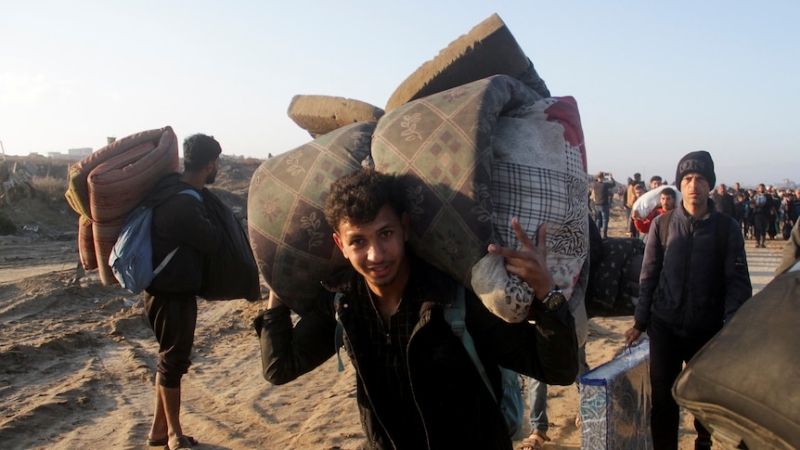Palestinians, who were displaced to the south during the Israel-Gaza conflict, make their way back to their homes in northern Gaza, after a ceasefire deal was struck (Reuters: Mahmoud Issa)
Tens of thousands of Palestinians streamed along the main roads leading north in on Monday, jubilant to be returning home after months of living in temporary shelter but fearing what might remain of their homes amid the bombed-out ruins.
Their return, which had been delayed at the weekend, went ahead after Hamas agreed to hand over three Israeli hostages later this week and Israeli forces began to withdraw from a main corridor across the enclave under the terms of an agreement on a ceasefire in the 15-month-long war.
In Israel, families of hostages waited anxiously for news of the fate of their loved ones.
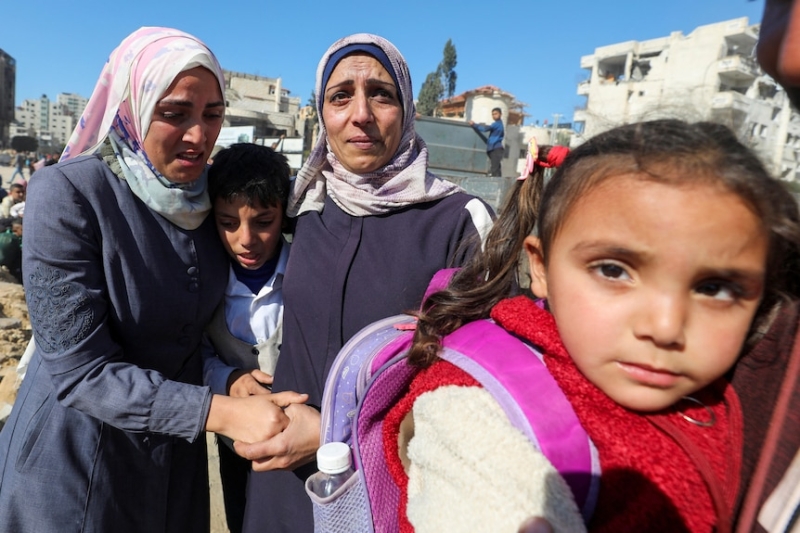
Palestinians, who were displaced to the south at Israel's order during the war, return to their homes in the northern Gaza (Reuters: Dawoud Abu Alkas)
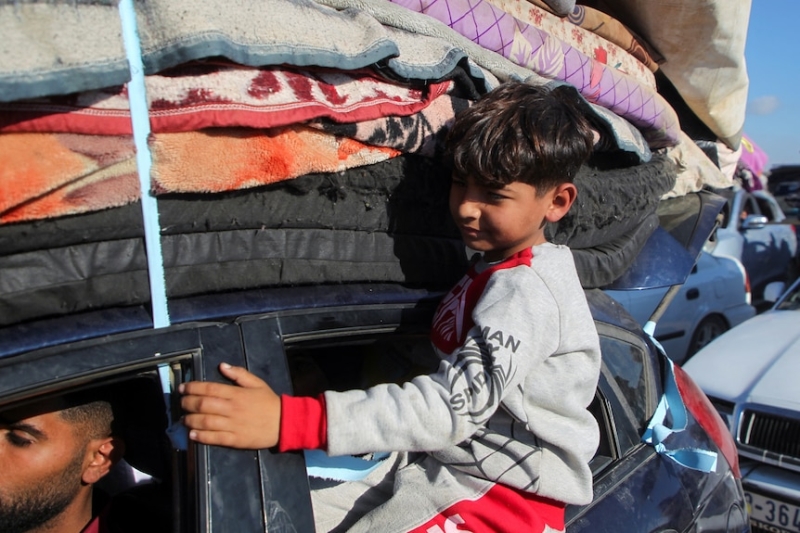
A Palestinian boy inside a car as he and others wait to have vehicles inspected by the Egyptian-Qatari committee (Reuters: Hatem Khaled)
Along a road running by Gaza's Mediterranean shore, a mass of people, some holding infants in their arms or carrying bundles of belongings on their shoulders, trekked north on foot.
"It's like I was born again and we were victorious again," said a Palestinian mother, Umm Mohammed Ali, part of the miles-long throng that moved slowly up the coastal road.
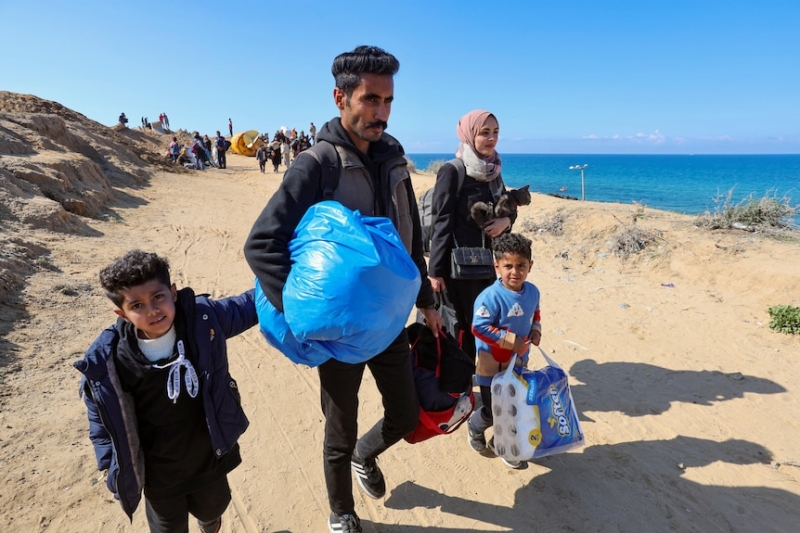
Hala Sleem, a Palestinian woman who was displaced to the south at Israel's order during the war, holds a cat as she walks with other Palestinians to return to their homes in northern Gaza (Reuters: Ramadan Abed)
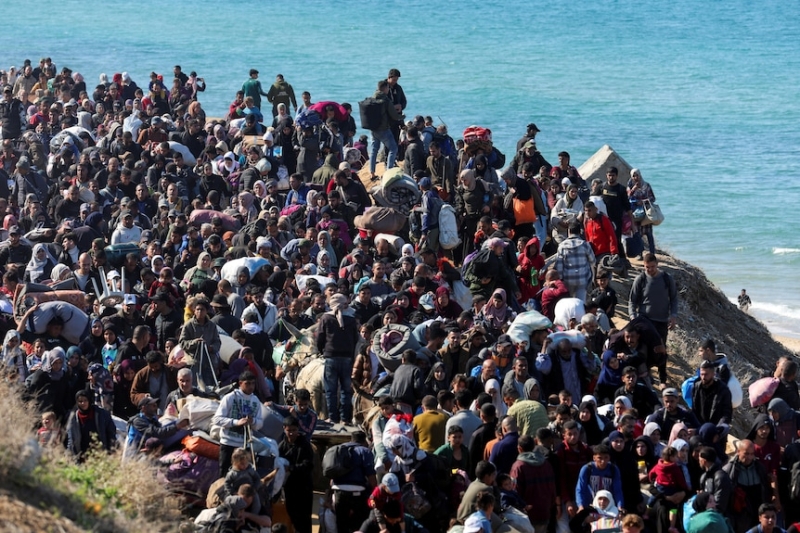
Palestinians, who were displaced to the south at Israel's order during the war, make their way back to their homes in northern Gaza, amid a ceasefire between Israel and Hamas, in the central Gaza Strip (Reuters: Ramadan Abed)
Witnesses said the first residents arrived in Gaza City in the early morning after the first crossing point in central Gaza opened at 7am, local time. Another crossing opened around three hours later, letting in vehicles.
Children in warm jackets and carrying backpacks walked hand in hand, men pushed the elderly in wheelchairs and families posed for photos as Hamas-hired officials in red vests directed them along the road.
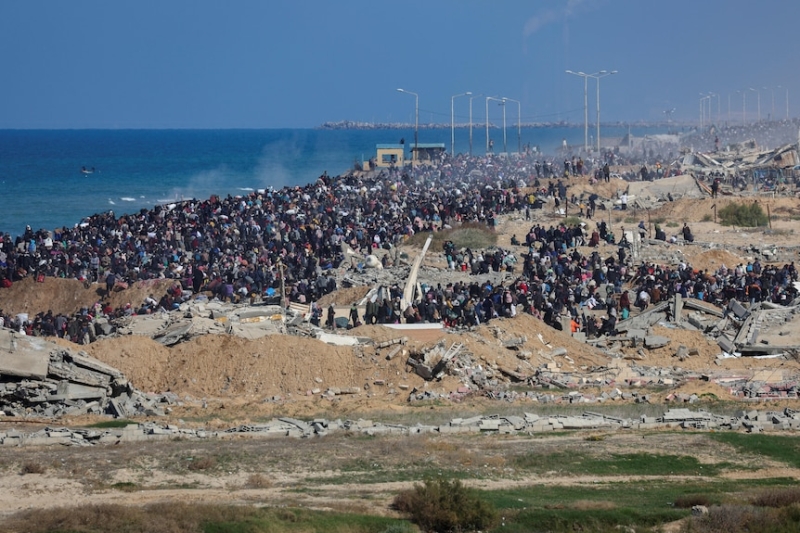
Palestinians, who were displaced to the south at Israel's order during the war, make their way back to their homes in northern Gaza (Reuters: Ramadan Abed )
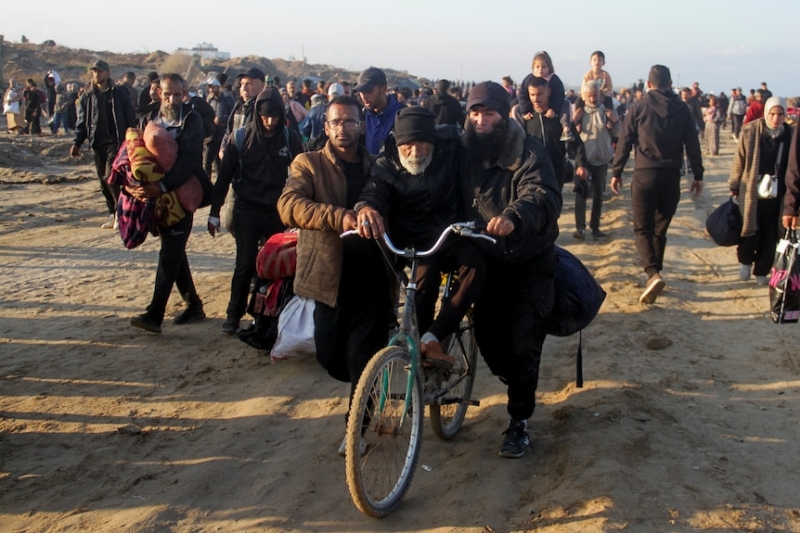
An elderly Palestinian man on a bike is propped up by two men (Reuters: Mahmoud Issa)
Around 650,000 Palestinians were displaced from northern Gaza during the war, which was triggered by Hamas' Oct. 7, 2023 assault on southern Israel in which 1,200 people were killed and 251 taken hostage, according to Israeli tallies.
More than 47,000 Palestinians have since been killed in the Israeli assault on Gaza, according to the Gaza health ministry.
Much of Gaza now lies in ruins. The Hamas-run Gaza government media office said returnees to the north need at least 135,000 tents and shelters as they try to re-establish their lives in the rubble-strewn landscape of their former homes.
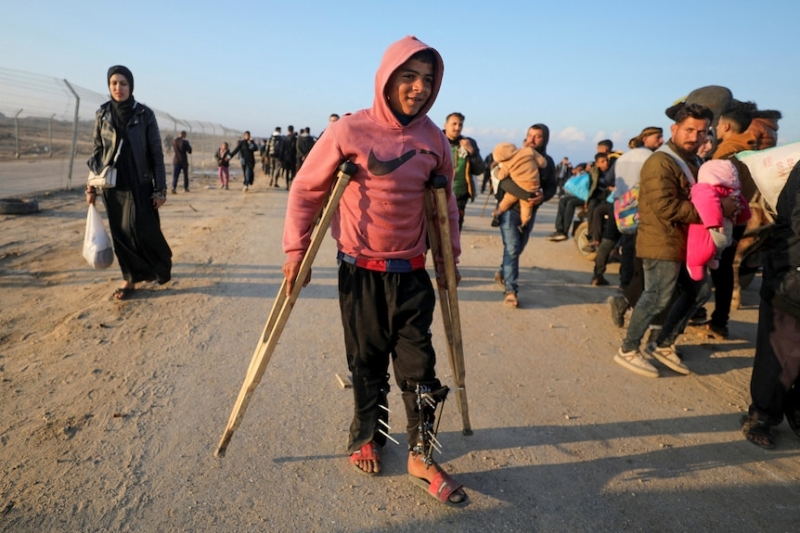
A Palestinian boy on crutches amongst the crowds walking home to northern Gaza (Reuters: Dawoud Abu Alkas)

A Palestinian family sit on a cart pulled by a horse (Reuters: Hatem Khaled)
Under the terms of the ceasefire agreement, residents of northern Gaza were due to return at the weekend. But Israel said that Hamas had broken the deal by failing to release civilian female hostage Arbel Yehud and kept its forces in the Netzarim corridor that cuts across the enclave south of Gaza City.
Late on Sunday, Qatari mediators resolved the dispute after Hamas agreed to release Yehud, along with female soldier Agam Berger and another hostage on Thursday, two days before the next scheduled release of three more hostages on Saturday. Israel then gave the green light for a return to north Gaza from Monday morning.
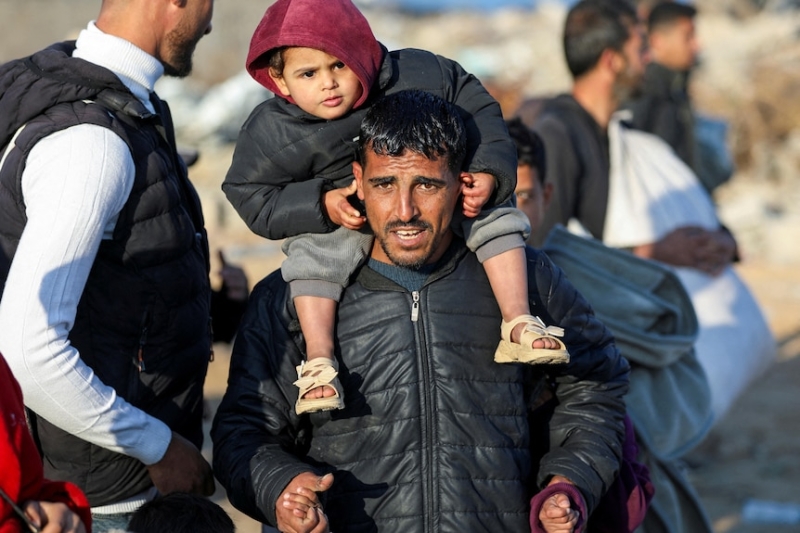
A Palestinian man, who was displaced to the south at Israel's order during the war, carries a child on his shoulders (Reuters: Dawoud Abu Alkas)
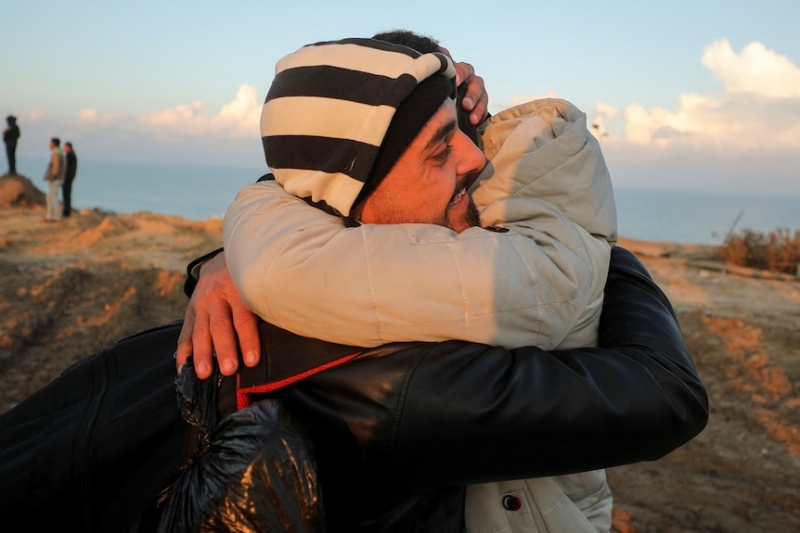
Two Palestinian men hug amongst a crowd of Gazans heading home amid a ceasefire deal (Reuters: Dawoud Abu Alkas)
Hamas has also provided a list of all hostages to be released during the first six-week phase of the ceasefire agreement, stating their condition.
On Monday, a Hamas official told Reuters the group had handed over to mediators a list that showed that 25 of 33 hostages scheduled for release in the first phase are alive. The figure of 25 included the seven hostages released since the truce began on Jan. 19.
Israel has confirmed the Hamas figures in the list – 25 are alive but eight were killed by Hamas, an Israeli government spokesman said.

